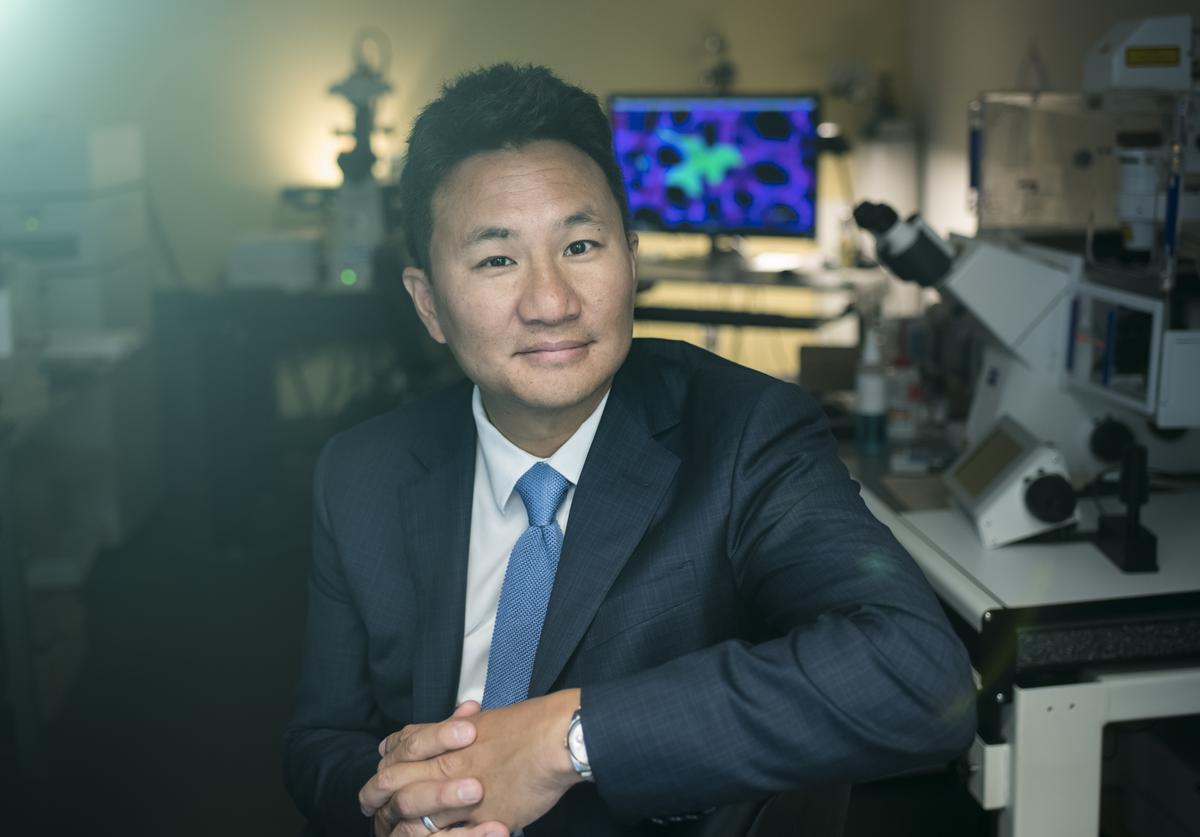Multi-institutional research project awarded $2.4M to tackle rare neuroendocrine tumours
A collaborative, multidisciplinary team of researchers from Sunnybrook Research Institute, University Health Network, and Queen’s University has been awarded a $2.4M Terry Fox New Frontiers Program Project Grant to discover new clinical tools and therapies to better detect and treat neuroendocrine tumours.
“Neuroendocrine tumours (NETs) are often diagnosed late and current treatment options are poor,” says principal investigator Dr. Hon Leong, a scientist at Sunnybrook Research Institute. “With the support of the Terry Fox Research Institute, we’re aiming to tackle an unmet clinical need for these patients using a four-pronged approach. We think this will significantly benefit patients all over the world.”
NETs begin in specialized cells called neuroendocrine cells that release hormones to control various functions throughout the body. They can occur anywhere in the body, including the gastrointestinal tract, lungs, and pancreas and can be extremely aggressive and resistant to most treatments.
The research program, led by Dr. Leong and Dr. Benjamin Lok, a clinician-scientist at Princess Margaret Cancer Centre, is comprised of four research projects, each with a specific aim:
- To improve our understanding of NETs and identify new treatment avenues by diving into the role of a signaling pathway known as miR-181 in three major types of NETs: pancreatic NETs (PanNETs), therapy-induced neuroendocrine prostate cancer (NEPC) and small cell lung carcinoma (SCLC).
- To focus on understanding and, if possible, delaying or preventing NEPC, which typically results in death within two years of diagnosis. This project centers on studying the role of circular RNA in driving the transformation of this cancer and understanding how this transformation results in resistance to advanced androgen-receptor targeting therapies. The team aims to gauge the effectiveness of targeted therapy and immunotherapy, as current treatments are limited and often ineffective.
- To advance therapeutic strategies in neuroendocrine carcinoma (NEC), a rare and aggressive form of cancer that occurs when cancerous neuroendocrine cells spread to other parts of the body. A preclinical “basket” study is proposed to efficiently explore therapeutic vulnerabilities that are common across NECs, regardless of their original site in the body.
- To improve diagnostic pathways and patient monitoring using an innovative approach called “liquid biopsies.” Similar to a blood test, a liquid biopsy could improve diagnosis, monitor disease progression and help predict patient prognosis in oncology. They will develop a “universal NET liquid biopsy” to detect any neuroendocrine tumour.
The research program will receive $2.4 million over four years to combine new technologies to improve understanding of NETs, and create better diagnostic tools and novel, patient-centered treatments. The team’s connection with Sunnybrook Health Sciences Centre’s NET clinic, which sees most NET patients in Canada, will create a significant advantage through accessibility to tumour samples and monitoring of patients on trials.
Sunnybrook scientists Drs. Hon Leong, Iacovos Michael and Carol Schuurmans are collaborating closely with clinician scientists Drs. Julie Hallet, Simron Singh and Calvin Law on the project.
“In our minds, this is probably the most prestigious cancer research grant in the world. When you first apply for this award, a sense of true responsibility surrounds the application and it gives us more meaning,” says Dr. Leong. “We are filled with deep admiration [for Terry Fox] and a desire to do the most with the funding.”
Read the full announcement from Terry Fox Research Institute






